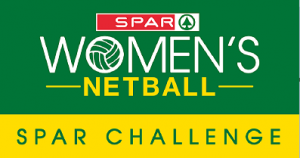In response to the poliomyelitis outbreak associated with type 2 circulating vaccine-derived poliovirus (cVDPV2) and ambiguous vaccine derived polio virus (aVDPVs) identified in Unity state, the World Health Organization (WHO), in collaboration with Ministry of Health and partners immunized over 155 000 migrant children under the age of 15 through special vaccination posts. Type 2 circulating vaccine-derived poliovirus (cVDPV2) and ambiguous vaccine derived polio virus (aVDPVs) was being detected in September 2014 and April 2015 respectively.
Widespread displacement and continual population movements due to ongoing conflict and insecurity, cattle riding as well as perennial flooding have resulted in a setback to the country’s immunization coverage and have exacerbated children’s vulnerability to Type 2 circulating vaccine-derived poliovirus and ambiguous vaccine derived polio virus (aVDPVs), especially those in besieged and hard-to-reach areas.
With the aim to reduce the risk of polio transmission among migrating population, 26 special vaccination posts, were opened in seven states located within and around the conflict affected states comprising of seven intra-state, 10 inter-states and nine inter-countries in seven strategic locations namely: Unity, Jonglei, Upper Nile, Warrap, Central Equatoria, Eastern Equatoria, and Lakes.
In order to stop the outbreak and prevent further spread, over 50 trained community health workers were deployed and have been able to reach 108 201 children under the age of 15 years in 2015 and 47 715 in 2016, with oral polio vaccines, where high numbers of children were reached in Unity state, the epicenter of the first outbreak. This has resulted in a marked reduction in the proportion of first time ever vaccinated children from 9% in 2015 to 4% in 2016 for the same period.
Since the war erupted in South Sudan in December 2013, more than 1.6 million people remain displaced internally, with the majority having fled to remote areas across the country and over 1 million people have fled to neighbouring countries. “The establishment of the special vaccinations posts as an additional strategy in a conflict setting of South Sudan provides greater opportunity for vulnerable population to receive critical interventions that could avert life threatening disease such as disability from poliomyelitis” said the WHO Representative to South Sudan Dr Abdulmumini Usman.
Due to the combined efforts from WHO, Ministry of Health and partners the cVDPV2 outbreak was successfully interrupted and declared over in June 2016.
The fight to end polio is led by the Government of South Sudan, with support from donors and partners, including Rotary International, USAID, WHO, UNICEF, the Bill & Melinda Gates Foundation and governments of the world as well as other partners.









